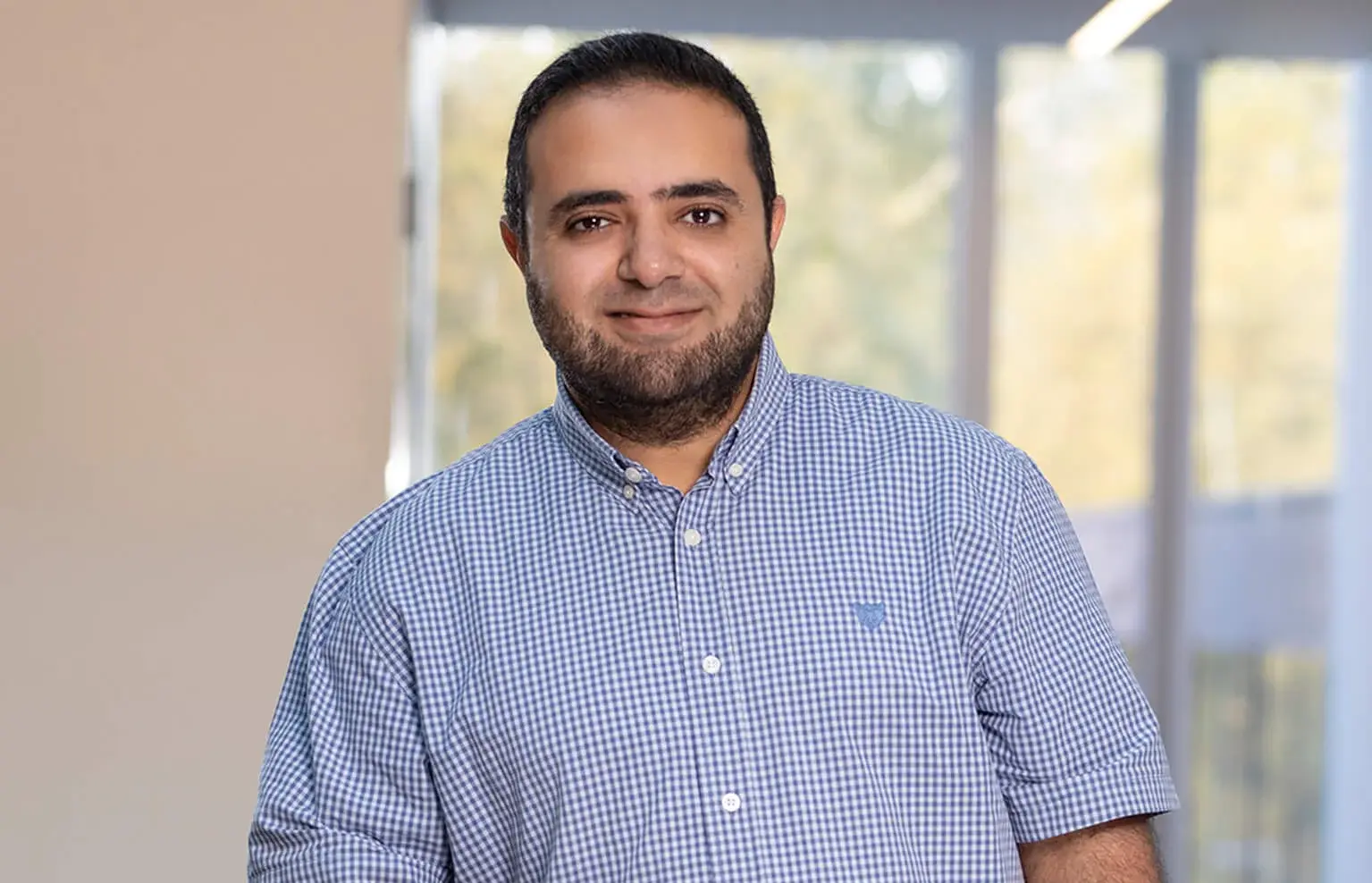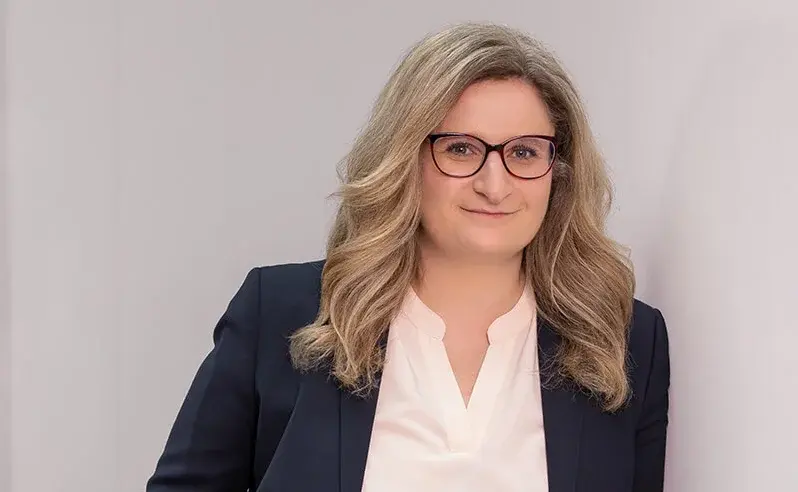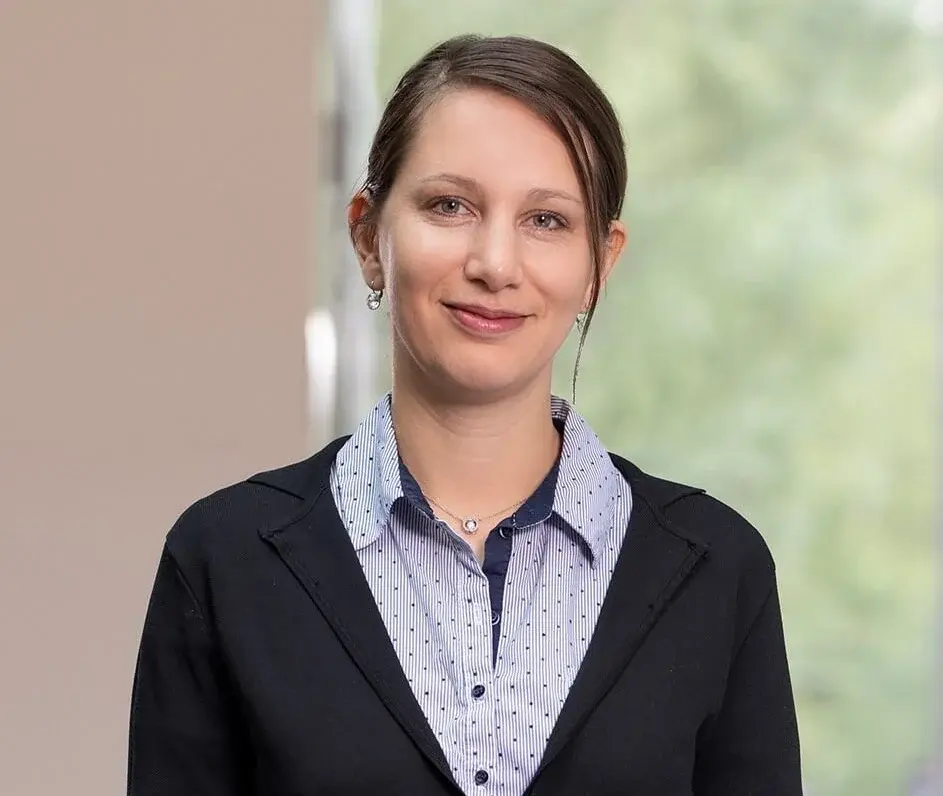Algorithms to Understand the World

Hartwig Anzt, Professor of Computational Mathematics at the TUM School of Computation, Information and Technology (CIT), develops numerical methods for high-performance computing on supercomputers. To make these algorithms available to the research community, he has initiated the GINKGO project, a software package that provides various numerical methods for solving systems of linear equations, much like a toolbox.
One example where GINKGO is used is MICROCARD, a project of the European High Performance Computing Joint Undertaking (EuroHPC JU). The project addresses the simulation of the human heart—or, more precisely, the electrochemical processes that takes place in the cells forming the human heart. Until now, the computing power has not been sufficient to represent the billions of cells forming the human heart as a digital twin. The MICROCARD project aims to provide a digital twin based on a cell-by-cell model to enable the detection cardiac rhythm disorders at an early stage and develop specific treatments.
Anzt and his team also work on accelerating the ICON climate code with the help of more efficient numerical methods and optimizing the software for modern hardware architectures. ICON, which is used by the German Climate Computing Center (DKRZ) and for calculating the daily weather forecast in the Tagesschau news program, among others, represents the Earth as a grid. The goal is to predict the weather in areas that are as narrowly defined as possible, which currently requires significant resources in time and energy. Anzt and his team aim to accelerate the individual simulation runs that contribute in an ensemble fashion with varying parameters to high-quality weather and climate prediction models.
Eye Movements in View

Whether its recommender systems in retailing or measuring impulse purchases, our eyes reveal more about us than we think. Eye tracking makes this measurable. Martin Meißner, Professor of Digital Marketing at TUM Campus Heilbronn, focuses his research on eye-tracking, augmented and virtual reality.
Eye-tracking measures the visual attention of test subjects. By observing eye movements, it is possible to determine which information plays a role in the decision-making process. Although it is not possible to know what a person was thinking, it is at least possible to see what they were looking at, either consciously or unconsciously. This data can be used to build a recommendation system that supports users in their decisions. Meißner's team's approach makes it possible to analyze the relevant data automatically. In the virtual reality this allows attention processes to be analyzed “on the fly” and change the environment in real time according to the gaze behavior of the test subjects.
When it comes to impulse buying, eye-tracking technology also provides important insights. Data from virtual shopping environment experiments can be used to draw conclusions about consumer motivation. The researchers are trying to understand how impulsive decisions are made and what attentional processes precede them. Martin Meißner conducts experiments in research and teaching. This enables students to learn how to use measuring instruments at an early stage and what they need to pay particular attention to.
Edge and Cloud – A Powerful Combination

In real-time sensor monitoring, sensors permanently monitor measurement data from critical infrastructures. In doing so, they generate vast amounts of data that previously had to be processed in clouds. The problem: only some of the data arrives there. One possible solution: the bulk of the unremarkable data is filtered out at the data source, known as the edge, with only the critical anomalies sent to the cloud. The combination of edge and cloud computing and the processing of sensor data for AI applications were the central topics of the completed “SensE” (Sensors on the Edge) project at TUM in cooperation with “Ingenieurbüro für Thermoakustik GmbH” (IFTA). Carsten Trinitis, Professor of Computer Architecture and Operating Systems at the TUM School of Computation, Information and Technology (CIT) in Heilbronn, led SensE together with Martin Schulz, Professor of Computer Architecture and Parallel Systems at TUM in Garching, and Dr. Roman Karlstetter, Technical Lead Software at IFTA. The aim of the project: to demonstrate the potential of hybrid sensor data processing using the example of a German gas-fired power plant with two high-performance turbines. The combination of edge and cloud computing also offered advantages when training an AI model for anomaly detection: the complex training took place in the cloud, which was supplied with data from various edge sources. The model was then transferred back to the edge and applied there. An important result of the project is a demonstrator that continuously analyzes sensor data from high-performance gas turbines and detects potential damage several days in advance.
Ensuring Safety

Cyber-physical systems (CPSs) make life easier by interacting autonomously with their environment. Examples of this include self-driving cars. Amr Alanwar, Professor of Cyber-Physical Systems at the TUM School of Computation, Information and Technology (CIT), is researching safety guarantees when dealing with CPS at the TUM Campus Heilbronn. These systems provide safety-critical functions in areas such as production, energy grids, medical devices and transport.
Prof Alanwar is investigating how the safety of autonomous vehicles can be guaranteed. V2X communication plays a central role here, enabling the real-time exchange of information between vehicles and other traffic participants. The aim is to ensure that autonomous vehicles navigate safely and do not cause accidents. Reachability analysis are used to guarantee safety at all possible locations of a vehicle. A data-driven approach is taken, using the car's position and speed to predict future scenarios. Prof Alanwar explains that by creating a set of all possible positions for the car and checking for possible intersections with obstacles, safety guarantees can be given.
In collaboration with the Royal Institute of Technology in Sweden and the commercial vehicle manufacturer Scania, Prof. Alanwar is working on maximizing road safety in autonomous driving. The protection of life is the top priority here. It will still be some time before fully automated driving is possible in everyday life.
One of the popular learning techniques here is reinforcement learning, in which algorithms are trained through reward and punishment in order to learn correct behavior. Prof Alanwar provide safety guaranteed reinforcement learning using data driven reachability analysis. However, the current state of research is not yet sufficient to guarantee the desired safety.
Success through Ownership Competence

Why are some companies more successful than others? What do the skills of their owners have to do with it? Miriam Bird, Professor of Entrepreneurship and Family Enterprise at TUM Campus Heilbronn, and her doctoral student Jannis von Nitzsch asked themselves these questions.
They focused on two central ownership competences: matching competence – simply put, the "entrepreneurial spirit" – and governance competence – the skill to create a governance structure that harmonizes the interests of the firm’s stakeholders. Bird, von Nitzsch and co-author Prof. Ed Saiedi from BI Norwegian Business School drew on a dataset of more than 2,500 German owner-managed firms, which provides detailed financial, ownership and top management data.
They also searched the LinkedIn profile of the largest shareholder for information on professional experience and education, but also for words that indicate a high level of matching or governance competence. Key findings: Firm growth is more likely to increase when their owners have higher governance and matching skills. However, family firms often benefit less from the governance skills of their owners than other firms. A potential reason: Family members may be preferred over nonfamily members, even if they are not necessarily the best fit for the respective positions.
Bird and von Nitzsch are currently in the process of developing an online tool with the aim to make their research accessible to the general public. Put simply: Their tool should help users to assess their ownership competences in about five minutes.
Sustainable in the Future

Companies today face the challenge of being economically successful and at the same time operating more sustainably. Luise Pufahl, Professor of Information Systems at the TUM School of Computation, Information and Technology (CIT), is researching at the TUM Campus Heilbronn how the sustainability of business processes can be made measurable and how transformations to more sustainable processes can succeed.
The complexity of the processes results from the dependencies and cooperation with partners. Without their data, the analysis can only be based on internal information Inaccurate or delayed data input can lead to errors. New technologies should support and standardize documentation.
Sustainability is increasingly becoming a decisive factor in business decisions. Companies are recognizing the need to protect the planet in order to survive in the long term. CO2 emissions and other sustainability data are being comprehensively recorded in lifecycle assessment databases, resulting in a complete sustainability cost factor. Prof Pufahl predicts that the government requirements for measurement and transparency with regards to sustainability will increase, making early action an advantage.
Prof Pufahl and her team are further developing the "SimuBridge" process simulator, which enables the simulation of business processes and their sustainability costs. A "digital twin" for business processes is intended to depict various scenarios and sustainability measures along the process chain. Blockchain technology could help to obtain trustworthy data from collaboration partners.
The pilot project is being developed on an internal university process, but expansion to other use cases is desired. Companies that establish sustainable processes at an early stage are investing in future-proof development.
